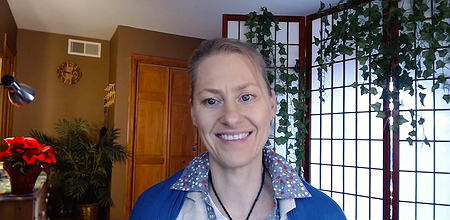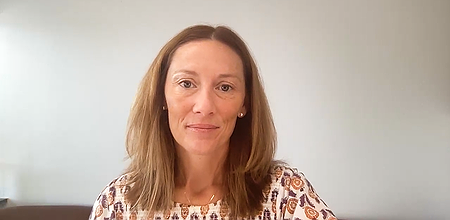- Understand the CBT model of panic attacks
- Implement CBT interventions for panic disorder
- Acquire a CBT conceptual model of health anxiety
- Implement techniques which can be used in treating health anxiety
CBT for Panic and Health Anxiety
Dr. John Ludgate, Psychologist
Enhance Clinical Outcomes in Panic and Health Anxiety
Excerpt:
- 3h of continuing education
- 23 lessons that last from 5 to 15 minutes each
- 1 certificate of achievement
- 1 PowerPoint
- 1 bibliography
- 1 course evaluation
- 7-day money back guarantee
- Unlimited access
- 97% of participants who completed the satisfaction survey declare they would recommend this course to a colleague
Overview
Panic attacks frequently occur alongside other anxiety disorders or mental health conditions, including health anxiety (formerly referred to as hypochondriasis).
In this workshop, Dr. Ludgate will revisit the CBT models for panic attacks and health anxiety, offering practical, evidence-based interventions to address these profoundly impairing disorders.
Participants will gain insights into:
- The CBT model of anxiety
- Understanding the perception of risk and resources
- The CBT framework for panic attacks
- Psychoeducation techniques
- Cognitive restructuring methods
- Exposure-based interventions
- The CBT approach to health anxiety
- Recognizing and reframing misinterpretations of bodily sensations
- Strategies for reattribution and decatastrophizing
This comprehensive workshop will equip attendees with the tools needed to implement effective strategies for achieving optimal clinical outcomes and preventing relapse.
Accreditation
Collège des médecins du Québec
For physicians who practice psychotherapy, training recognized by the Ordre des psychologues du Québec is automatically considered as activities adopted by the Collège des médecins, in accordance with Article 3 of the Regulation.
For physicians who do not practice psychotherapy, the College evaluates each recognition request based on the following criteria:
- the relevance of the activity to the practice of the profession
- the skills and experience of the trainer
- the quality of the content and its adequacy with the physician's practice
- the pedagogical framework of the activity
- the quality of the documentation provided
- compliance with the training objectives set out in the regulation
- the presence of a certificate of participation or an evaluation
About the expert

Dr. John Ludgate is a licensed psychologist and Founding Fellow of the Academy of Cognitive Therapy, where he serves on the Credentialing Committee. He received his clinical training directly under Dr. Aaron Beck, the founder of Cognitive Therapy, at the Center for Cognitive Therapy.
With over 30 years of clinical practice, Dr. Ludgate specializes in treating mood disorders, anxiety disorders, and relationship problems at the CBT Center of Western North Carolina in Asheville. He maintains an active clinical practice while providing advanced training and supervision in Cognitive Behavioral Therapy to mental health professionals nationally and internationally.
Dr. Ludgate has authored numerous influential books in the field, including CBT Couples Toolbox, Maximizing Psychotherapeutic Gains and Preventing Relapse in Emotionally Distressed Clients, Cognitive Therapy with Inpatients: Developing a Cognitive Milieu, Overcoming Compassion Fatigue: A Practical Resilience Workbook, and Heal Yourself: A CBT Approach to Reducing Therapist Distress and Increasing Therapeutic Effectiveness.
He has published extensively in peer-reviewed journals and contributed chapters to major cognitive behavioral therapy texts. His presentations and workshops on CBT approaches to anxiety, depression, and relationship problems have reached audiences across North America, Europe, and Asia. His work focuses on translating evidence-based research into practical clinical applications that therapists can immediately implement in their practice.
Learning objectives
Learning material
A theoretical course illustrated with clinical examples. This course is composed of videos of 5 to 15 minutes each. The PowerPoint of the course to download.
Syllabus
- PowerPoint
- 1. Presentation
-
Overview of CBT for Anxiety
- 2. CBT Model of Anxiety
- 3. Additional Important Dimensions of Anxiety
-
CBT for Panic Disorder
- 4. Criteria and incidence
- 5. Cognitive Themes in Panic
- 6. CBT Model of Panic Attacks
- 7. CBT Assessment Panic Disorder
- 8. Evidence Base
- 9. CBT for Panic Disorder
- 10. Re-Attribution-Generating Alternatives
- 11. CBT for Panic Cont.
- 12. Exposure Methods
-
CBT for Health Anxiety
- 13. Illness Anxiety Disorder- Prevalence
- 14. Health Anxiety-Illness Anxiety Disorder
- 15. Differential Diagnosis
- 16. CBT Model- factors which maintain health anxiety
- 17. CBT Model of Health Anxiety
- 18. CBT Assessment
- 19. Engaging the Client
- 20. Targets for CBT Where Health Anxiety is Present
- 21. Re-Attribution-Generating Alternatives and De-Catastrophizing in HA
- 22. Dysfunctional Assumptions to Identify and Challenge
- 23. Conclusion
- Bibliography
-
Additional Resources
- Handouts
CE Credits
Download a certificate of successful completion.
Audience
This course is intended for mental health professionals.
Registration
Ask a question
Do you have a question? Then email us at contact@asadis.net
Frequently asked questions
-
Is there an evaluation at the end of the course?
To validate the achievement of the learning objectives, a final evaluation in the form of true/false questions is required. It must be completed in order to obtain the certificate of completion.
In addition, an optional self-assessment is offered at the beginning and end of the course, allowing you to measure your progress on the targeted skills.
These evaluations are not graded and are intended primarily to support your professional reflection.
-
I have a disability. Can I receive specific support?
Yes! This training is offered as a pre-recorded video format, without subtitles. If you have a disability, we can provide an adapted alternative (technical assistance for viewing or individual supervision). For any request, please contact our disability coordinator at the following address: contact@asadis.net
-
How long do I have access to the course?
After your registration, the course is accessible anytime and from anywhere with unlimited access.
-
When does the course start?
That is entirely up to you! When you buy a course, you'll receive an access link that you can activate when you want.
-
Is there a student rate?
Yes there is! To learn more, email us at contact@asadis.net.
You may also be interested in:
Legal notice
The courses offered by ASADIS are accredited by different professional organisations. In addition, ASADIS is approved by the Canadian Psychological Association to offer continuing education for psychologists. ASADIS maintains responsibility for the program.
The CPA’s approval of an individual, group, or organization as a CE Sponsor or Provider is restricted to the activities described in the approved application or annual report form. The CPA’s approval does not extend to any other CE activity the Sponsor or Provider might offer. In granting its approval, the CPA assumes no legal or financial obligations to Sponsors, Providers, or to those individuals who might participate in a Sponsor or Provider’s CE activities or programs. Further, responsibility for the content, provision, and delivery of any CE activity approved by the CPA remains that of the CE Sponsor or Provider. The CPA disclaims all legal liability associated with the content, provision, and delivery of the approved CE activity.






